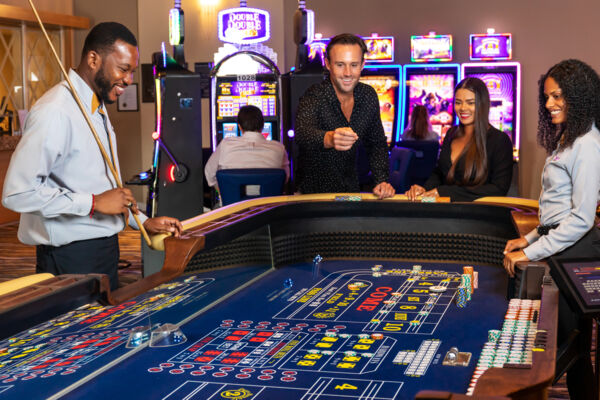The Strange Fairness of Defeat
Every casino promises the same glittering possibility: the chance to win. Yet, seasoned gamblers know that not every win brings joy. For some, losses feel more honest, more deserved, even more comfortable than victories. It is a paradox that puzzles outsiders but makes perfect sense to those who live inside the rhythm of bets and spins.
Players at https://wintopia.gr/ often remark that losses felt “fair,” as though they aligned with the invisible contract between gambler and casino. Wins, by contrast, often sparked guilt, anxiety, or even dread of the next inevitable downfall. This article explores why losing at the casino sometimes feels more natural than winning – by looking at psychology, culture, rituals, and the very structure of casino design.
The Psychology of Loss as Justice
The Comfort of Expectation
Human beings crave consistency. In the casino, expectation leans toward loss because of the clear mathematical truth: the house always wins. When players lose, the result validates what they already believe.
- Predictable pain: Losing is not a surprise – it is the default. This predictability makes it less emotionally disruptive.
- A sense of fairness: Losing feels like fulfilling a contract with chance: “I came to risk, and this is the price.”
- Emotional closure: Unlike a win, which raises more questions (“Should I stop now?” “Do I play more?”), a loss often brings a sense of finality.
The Disruption of Winning
Ironically, winning destabilizes the gambling experience. Victories feel like anomalies that require explanation. Did fate suddenly shift in your favor – or is the universe waiting to balance the scales?
- Decision paralysis: Wins force choices – withdraw, reinvest, or keep chasing? Each option carries weight.
- Fear of reversal: Every win sharpens the shadow of the next loss.
- Guilt of imbalance: Some players report feeling they have disrupted the “natural order” of the casino, as though they owe something back.
Loss as Ritual
Gambling is rarely just mechanical; it is ritualistic. Loss plays a central role in that ritual.
- Payment as purification: Losing feels like paying a tithe to the casino gods, cleansing the soul for the next attempt.
- Balance restored: A loss reaffirms that the system is intact, that luck has not broken in some unfair direction.
- Agency in defeat: By framing the loss as a conscious choice (“I decided to bet and accepted the risk”), players regain a sense of control.
Cultural Narratives of Losing
The Romantic Loser
Popular culture often glorifies the gambler who loses nobly. In movies and novels, the tragic figure who bets his last coin and accepts defeat often seems more dignified than the boastful winner.
- Tragic heroes: Literature celebrates those who face loss with grace.
- Societal empathy: Losers are pitied, winners envied. The former brings comfort, the latter isolation.
- Folklore of fairness: From Dostoevsky’s The Gambler to modern casino films, losing often symbolizes honesty and humanity.
Winning as Alienation
Victories often isolate the gambler. Friends envy rather than empathize, and winners are cast as anomalies in the collective story of inevitable loss.
The Subtle Design of Casinos
Casinos – both physical and digital – are masters of making loss feel less punishing.
- Near wins: Slot reels stop just short of a jackpot, creating the illusion of “almost there.”
- Losses disguised as wins: Machines celebrate even when the payout is smaller than the wager.
- Reward in defeat: Free spins, loyalty points, or encouraging messages soften the blow.
Online casinos take this further with seamless retry buttons, cheerful animations, and bonus offers that turn losing into a chance to keep playing.
The Hidden Relief of Losing
Emotional Reset
A win creates tension – what to do now? A loss clears the slate.
- No future obligations: Losing ends the “what next” anxiety.
- Psychological cleansing: Defeat can feel like closure, releasing pressure.
- Return to normal: Loss reestablishes the equilibrium of expectation.
Voluntary Defeat
Some players unconsciously seek loss.
- Self-sabotage: Feeling unworthy of victory, they play in ways that ensure eventual loss.
- Restoration of fairness: Wins create imbalance; losses feel like restoring justice.
- Continuation effect: Wins threaten to end the game. Losses promise another chance.
Why Fairness Matters More Than Profit
At its core, gambling is less about money than about meaning. Players crave a sense that the outcome – good or bad – fits within a narrative of fairness.
- Fair loss > unfair win: A lucky fluke feels undeserved; a loss feels like natural order.
- Justice as comfort: Even in defeat, players can say, “It was fair.”
- Identity in loss: Many gamblers see themselves not as winners or losers, but as participants in a ritual where loss is the most honest outcome.
Online Gambling and the Reframing of Defeat
Digital casinos amplify the psychology of fair loss. They provide constant reinforcement that losing is part of progress.
- Gamification: Even losses contribute to “levels” or unlock bonus features.
- Optimistic framing: Messages like “Almost there!” turn defeat into motivation.
- Instant redemption: The next round is just one click away, making loss less final.
Platforms embody this trend – loss is reframed as participation, not punishment.
Case Studies of the “Fair Loss” Paradox
- The cautious slot player: Maria plays only small bets. She feels safer losing €20 than winning €200, because small losses confirm her belief that she is “just playing.” Wins make her nervous.
- The poker enthusiast: James admits that when he loses, he sleeps better. Winning makes him overanalyze every decision.
- The online grinder: Ahmed plays on digital platforms where every loss still gives him loyalty rewards. He claims losing feels like “collecting points for the next win.”
Philosophical Dimensions of Loss
Loss carries existential meaning.
- Loss as truth: Many gamblers view defeat as life’s most honest teacher.
- Win as illusion: Victories seem temporary, a fragile interruption in the natural order.
- Loss as belonging: To lose is to be part of the collective human experience of limitation.
Conclusion: The Strange Fairness of Losing
The paradox of gambling is that winning is not always the most satisfying outcome. Loss feels consistent, fair, and even cleansing, while victories can bring anxiety, guilt, and disruption. Casinos skillfully amplify this paradox by designing losses that feel gentle, meaningful, even rewarding.
For many players, leaving the table empty-handed feels strangely honest. The game is not only about chasing wins – it is about seeking a sense of fairness in defeat. And in that fairness, perhaps, lies the real reason they keep coming back.

